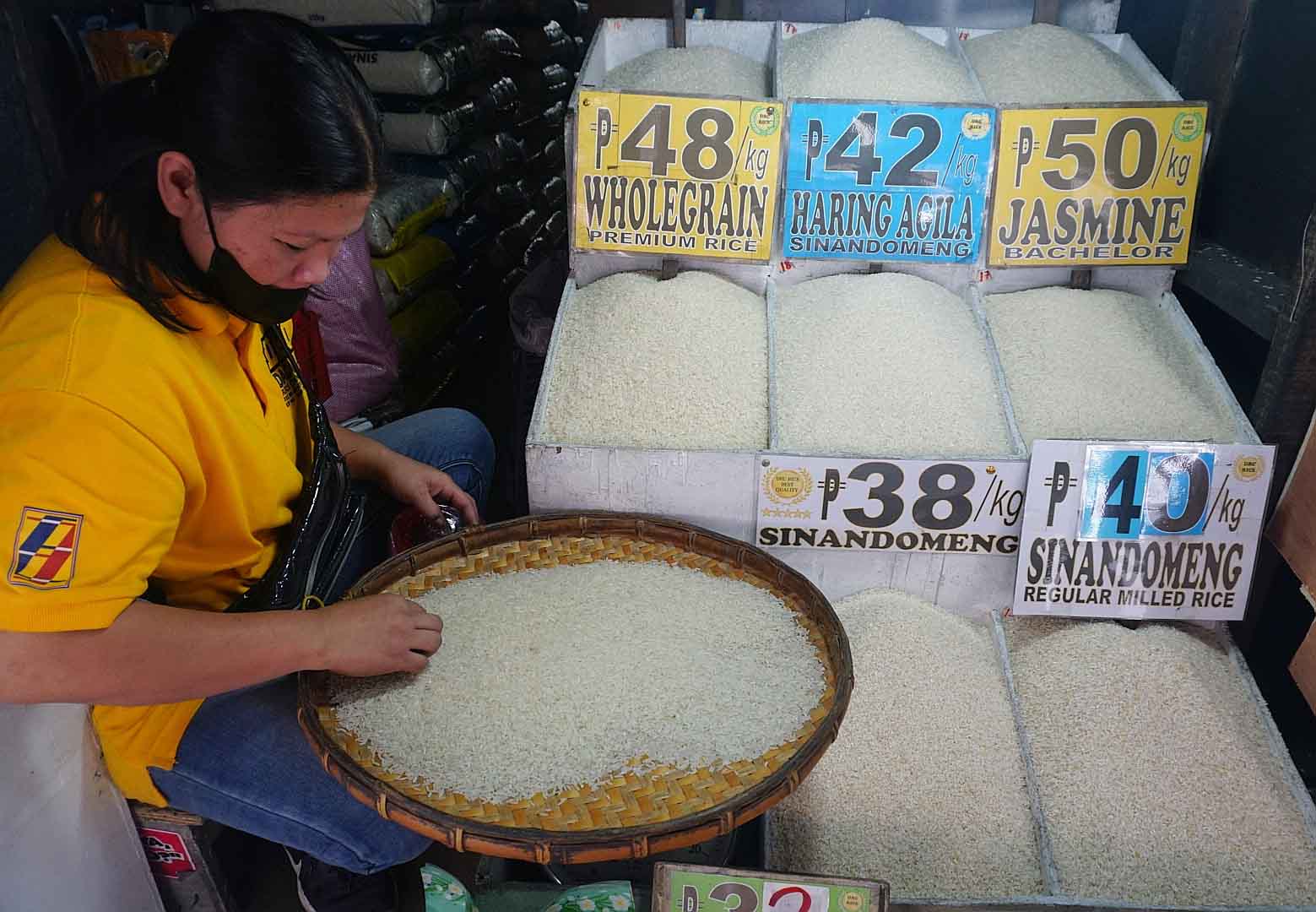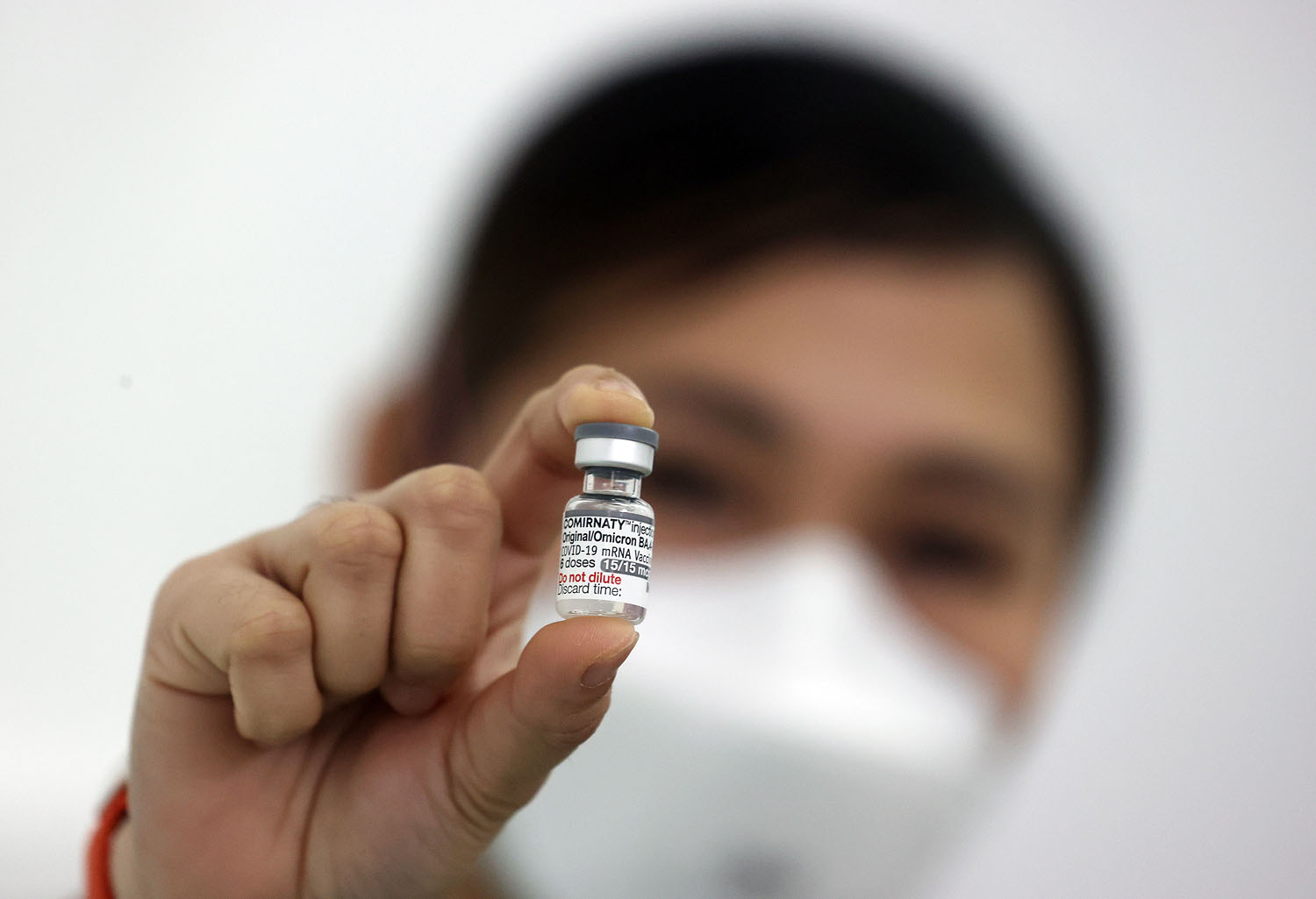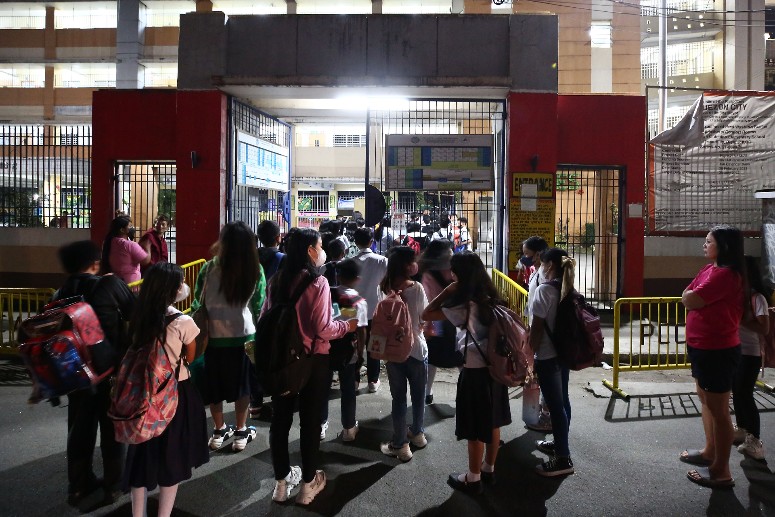Fulfilled or broken? Here's the status of Marcos' major promises in his first SONA
When President Ferdinand "Bongbong" Marcos Jr. delivered his inaugural State of the Nation Address (SONA) last year, he made ambitious promises to the Filipino people. He wrapped up his hour-and-a-quarter address with an even more ambitious soundbite: "I know this in my mind, in my heart, in my very soul that the state of the nation is sound."
Fast forward to July 24, during which Marcos will deliver his second SONA,—which he called a "really very simple" performance report to Filipinos about his administration's "significant progress" in the past year—one may wonder what's the status of his past promises.
Have they come to fruition, if not started taking shape already? Or have they reinforced the age-old saying that promises are meant to be broken?
Here are his major promises among the different sectors.
Economy
Marcos said his administration will implement a "sound fiscal management" through tax administration reforms, realignment of expenditure priorities, and promotion of productivity-enhancing investments.
He wanted to capitalize on measures that seek to attract foreign investments like the CREATE Law, the Public Service Act, and the Foreign Investments Act.
One of his ways to cushion the blow on the pandemic-stricken economy is to tax digital services providers like Netflix, with Marcos noting it will generate P11.7 billion in 2023 alone. However, this proposal has not yet been implemented.
Marcos also cited projections of the gross domestic product settling from 6.5% to 8% between 2023 and 2028. At the start of 2023, inflation reached 8.7%, the highest since 2008, and only slowed down to 5.4% in June.
He also said the Philippine peso will average from P51 to P53 per United States dollar in 2022. That year's rate averaged P54.47, according to the central bank.
Marcos is also envisioning that the country's debt-to-GDP ratio would be less than 60% by 2025. But as of May, the national debt has reached a record P14.1 trillion, or 62.1%.
Agriculture
Marcos is seeking to improve the agriculture sector by:
- issuing an executive order imposing a year-long moratorium on payment of land amortization and interest payments;
- providing loan and financial assistance to farmers and fishermen;
- signing the law freeing agrarian reform beneficiaries from debt (New Agrarian Emancipation Act).

On July 7, 2023, Marcos signed the NAE Act, which will benefit more than 600,000 agrarian reform beneficiaries over P57 billion.
His call to launch a network of farm-to-market roads to expedite the transportation of goods has also been realized.
Food prices, however, remained high due to several factors, including the COVID-19 pandemic and the Ukraine-Russia war.
Onion prices skyrocketed to P600 per kilo during the last week of December 2022, while rice, which Marcos is seeking to bring down to as low as P20 per kilo, retails for P36 to P60 in Metro Manila to date.
Infrastructure
Marcos said he will continue the Duterte administration's "Build, Build, Build" infrastructure program, and improve it even, dubbing it "Build Better More." He said it's his "very high priority" in the drive for growth and employment.
He said he gave the Department of Transportation a "simple" order, i.e., "Full speed ahead!"
Nearly half of the projects are ongoing.
The National Economic Development Authority said there are 194 high-impact infrastructure flagship projects (IFPs) worth P8.3 trillion, 71 of which are from the Duterte administration.
NEDA Sec. Arsenio Balisacan said 93 IFPs are ongoing and approved for implementation; 9 for government approval; and 92 for pre-project preparation.
Marcos also urged to strengthen public-private partnerships for infrastructure projects. In line with that, several bills were filed in Congress.
In December 2022, the House of Representatives approved on the third and final reading the consolidated House Bill 6527, or the Public-Private Partnership Act. The Senate filed its version last May.
The House also passed on the third and final reading of the consolidated HB 8078 or the 30-Year National Infrastructure Program Act, which seeks to establish sustained major infrastructure projects to be fulfilled. The Senate's version is still pending.
Health
Marcos is looking forward to the creation of several health establishments like the country's own Center for Disease Control and Prevention, Virology Institute of the Philippines, and Medical Reserve Corps.
He also wants specialty hospitals like Heart Center, Lung Center, Children’s Hospital, and National Kidney and Transplant Institute to be established outside of the metro.
Lawmakers have yet to file bills seeking the creation of such establishments just yet.
It also remains to be seen how Marcos will "exert all efforts," as he said, to improve the welfare of medical frontlines.

But as Marcos mentioned, COVID-19 vaccine boosters are continuously being rolled out. Last June, the country received from Lithuania a donation of over 390,000 doses of bivalent vaccines, which are designed to correspond to the virus's original strain and Omicron variants.
No lockdowns were also being imposed as promised.
Education
As President Marcos had instructed in his speech, schools in the Philippines have resumed full face-to-face classes.
He also ordered a review of the K to 12 school system, as there are concerns about whether it is still viable. These concerns include whether graduates are ready for employment and whether the program leads to quality education. The education sector has long faced problems, and the pandemic has only made them worse.
The review is expected to be done by May 2024, according to the Department of Education (DepEd).
Marcos is also looking to institute a program of refresher courses and re-trainings for teachers "so they can stay abreast of the rapid growth in technology, especially in the post-pandemic world." Vice President and DepEd Sec. Sara Duterte said these are ongoing.

In response to the president's call to end the "horror stories" of poor quality of educational materials and supplies, DepEd in November 2022 created a team to review procurement processes for textbooks, teaching manuals, and other learning resources.
One of the president's calls was to make mandatory the Reserve Officers' Training Corps (ROTC), which he said would "motivate, train, organize and mobilize the students for national defense preparedness." To date, it's among the priority measures that lawmakers agreed on, to pass a mandatory ROTC law within the year.
Many concerned citizens and even government officials have since criticized mandatory military training, citing past cases of corruption and abuse.
Tourism
Marcos said that it's time "to welcome the rest of the world with an enhanced Filipino brand that is unique, attractive, and creative."
He said it's important, "first and foremost" to make basic developments such as road improvements for easier access to tourism spots. He has also sought to upgrade airports and create more international airports.
Last June, the Department of Transportation and the Manila International Airport Authority submitted a joint proposal to upgrade Ninoy Aquino International Airport via a public-private partnership.
To date, there are IFPs for the creation of new airports, including the New Manila International Airport PPP project, the New Zamboanga Airport, the New Dumaguete Airport, and the New Siargao Airport. There are also airport development projects in Naga, Busuanga, Bukidnon, Antique, Laoag, and Tacloban.
The administration's attempt at having an "enhanced Filipino brand" was through the "Love the Philippines" campaign. It was, however, met with mixed reactions.
Others
Marcos said his administration expects to issue 30 million physical national identification cards and 20 million digital IDs by the end of 2022. By mid-2023, he said the target of 92 million IDs would be accomplished.
But the Philippine Statistics Authority said that as of June, it has issued about 70 million physical and digital IDs. The Manila Central Post Office fire last May also destroyed many physical IDs.
Promoting good governance using digitizing services also remains to be seen, as such measures have yet to be passed. Marcos also didn't mention concrete plans to address corruption in government.
Overall, the government has made some progress on the issues President Marcos mentioned during his first SONA. However, there is still a lot of work to be done to achieve the goals he has set.


